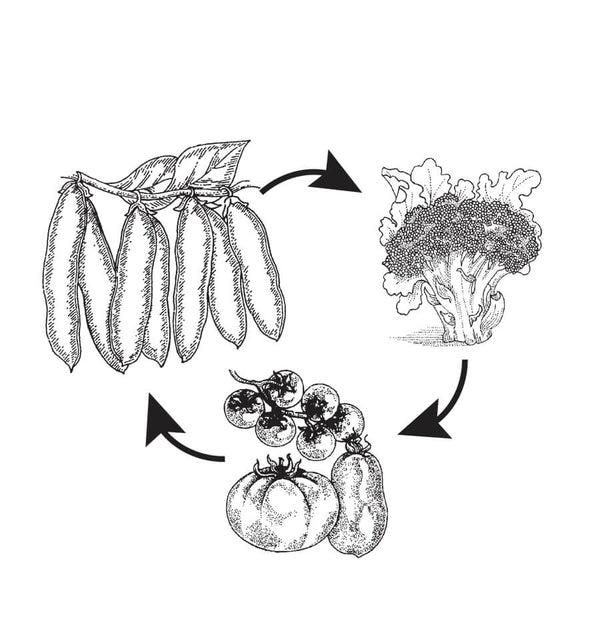Support Food Banks Canada with every dollar spent — 15% sales donated from Black Friday to Cyber Monday.
Time remaining:
Time remaining:

Crop rotation is the practice of not growing plants where similar plants grew the previous year. Crop rotation prevents the build up of pests and diseases and optimizes the use of soil nutrients. Plants from different “families” need different amounts of...
Continue ReadingIn our relatively short growing season, we need to grow most food crops in a fairly intense way. We need to select crops that mature quickly. Some crops, like mescluns and salad greens grow so fast that we can take...
Continue ReadingWith over 1,100 seed varieties to choose from, finding a clear path to the checkout can feel overwhelming. There are beginner mistakes to be made - as well as ways for seasoned gardeners to bite off more than they can chew. Here are Mark's top ten pointers to consider when planting a new garden.
Continue ReadingCollards (Brassica oleracea Acephala group) Kale (Brassica oleracea Acephala group) Russian or Napa Kale (Brassica rapus ssp. pabularia syn. B. napus) Learn about kale and collards here. As the Latin name suggests, Brassicas in the Acephala group do not form...
Continue ReadingThe first average frost date for Lower Mainland BC is November 2. This date is reflected pretty closely from the Sunshine Coast and Gulf Islands, coastal Vancouver Island, Puget Sound, and down to the Willamette Valley in Oregon. That means...
Continue ReadingHere's our list of seeds to start in August for fall and winter harvests. These fast-growing seeds are cold hardy, and will thrive as the nights get cooler in late August and September. Check the first average frost date for...
Continue ReadingAll homegrown vegetables are nutritious. The fact that you can eat them fresh, just after they have been harvested, means that they will be at the peak of both flavour and nutrient value. But among the many food plants you...
Continue ReadingSome vegetable varieties thrive in the cool conditions of fall and early winter, and offered a bit of protection from extreme cold, they can be harvested right through until spring. The best winter gardening varieties actually improve in flavour, texture,...
Continue ReadingPlanting for fall & winter harvests has to start in the summer and fall. Just like we sow summer harvest crops in the late winter and spring – it’s the same concept. Did you know that many crops can be...
Continue ReadingAs far as the calendar is concerned, spring is half over, despite the sense for many of us in 2017 that is yet to begin! There are still dozens of seeds to start in May. It can still be cold...
Continue ReadingWith Mom’s special day fast approaching, we put together a simple Mother’s Day gift bag you can print at home. Cut it out from the template and follow our instructions for folding and gluing (or taping) into its final shape....
Continue ReadingWinter is finally over, and spring has arrived. It’s time to plant seeds! Many gardeners make the mistake of thinking of seed planting as a one time, annual event, as though it was something to get over and done with...
Continue ReadingIf you ever find yourself tempted to purchase kale from a supermarket, you really ought to try growing it. By its nature, kale is one of the easiest, hardiest, and most productive of all crops. It doesn’t need warm soil...
Continue ReadingBack on Day 2 of our Twenty-one Days of Green, we talked about planting chives. We chose chives because they have to be among the very simplest of all herbs to grow from seed. They are extremely useful in the...
Continue ReadingWith careful planning, seeds can be sown from winter to autumn in order to keep the garden productive pretty much all year round. Here are some tips for seed sowing for the longest harvest window. Determined growers sometimes think of...
Continue ReadingBaby leaf lettuces are bred for their appeal at an immature stage. As baby greens they have traits that are particularly attractive for salad mixes. The leaves are succulent and tasty, with good texture, and they come in a variety...
Continue Reading